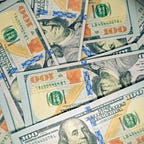Global recession and factors that contribute to it
GLOBAL RECESSION:
Global recession can be defined as a significant drop in national economies that adversely impacts nations around the globe, and therefore is typically accompanied by deterioration of significant economic metrics such as rapid industrialization, commerce, financial flows, and consumption of raw materials, labour force participation rate, per-capita expenditure, and per-capita utilization. It is a prolonged period of worldwide economic deterioration. As trade links and multilateral institutions carry economic turmoil and the consequences of catastrophe from one economy to the other, a global recession entails somewhat coordinated economic crises across several national economies. The International Monetary Fund (IMF) offers a multitude of criteria to define global economic crises, such as a drop in global per capita GDP. As per the IMF, a reduction in global supply must be accompanied by deterioration in other macroeconomic variables such as commerce, financial flows, and employment.
FACTORS INFLUENCING GLOBAL RECESSION:
There are a variety of factors that can contribute to global recessions. These include war, asset price collapses, energy and commodity price collapses, drying demand, less spending, lower wages, and a possible decline in private consumption confidence. The problem is exacerbated by a significant increase in risk aversion, which occurs as the recession develops. The primary cause of the global recession is a decline in aggregate demand.
Other factors that could contribute to a global recession are,
- A financial crisis-It happens when banks run out of money, prompting them to restrict lending, which in turn leads to a reduction in overall spending and consumption.
- An increase in interest rates- It occurs whenever the cost of borrowing increases at the same time that demand decreases.
- Asset values plummeting- It relates to a negative net worth effect, which causes people to spend less money than they have.
- Average wages are dropping — Inflation surpassing nominal pay hikes is the most compelling proof of real wages drop.
- Average wages are dropping — Inflation outpacing nominal pay hikes is the most compelling proof of real wages drop.
- Multiplier effect- The deepening of the negative multiplier effect has resulted in a decrease in customer and business trust.
- Increase in the exchange rate- It has the effect of reducing the competitiveness of exports in the marketplace.
- Fiscal austerity- It occurs when the government decreases its spending, which is referred to as fiscal austerity.
- Trade wars- An inevitable consequence of the trade war is the onset of global economic recession.
- Constant Loss of Confidence in Investment and the Economy- Lack of faith causes customers to cease purchasing and transition into a conservative state.
- Asset Bubbles- They form whenever the economic system is on the verge of a surge, and buyers in a particular commodity, such as shares, bond funds, or estate development, purchase it with the expectation of later selling it for a premium cost, till the industry realizes that there is less underlying development in that investment than initially assumed. Eventually asset prices come down, and if the sector is broad enough, it will deplete a considerable percentage of the value held by the people all throughout the market. That might set off a global recession.
- Black swan event- It is an extremely rare occurrence that has serious consequences. It is possible that it cannot be predicted in advance, despite the fact that many people wrongly believe that it can only be predicted after the fact. Even the use of advanced modelling cannot prevent a black swan event from causing significant damage to an economy by adversely influencing prices and assets prices and assets prices and assets.
- Supply shock- It occurs when an unforeseen incident alters the supply of goods, causing unanticipated price changes. These can indeed be negative, leading to a reduction in availability, or positive, leading to a rise in availability; nevertheless, supply shocks are frequently negative. An adverse supply shock induces cost of the product to rocket upward, whereas a positive supply shock forces the cost of products to decline, providing economic activity remains intact.
- Besides these factors, high interest rates and a stock market crash, decreasing real estate prices and sales, a downturn in production demand, deregulation, inefficient management, and wage-price regulations etcetera also influence global recession.
